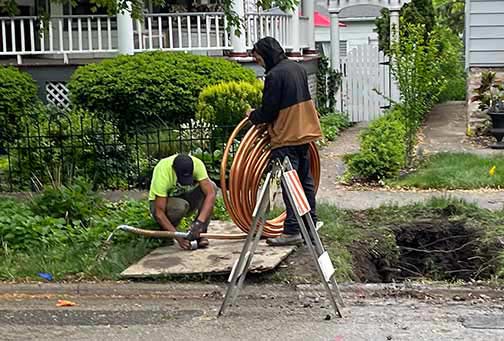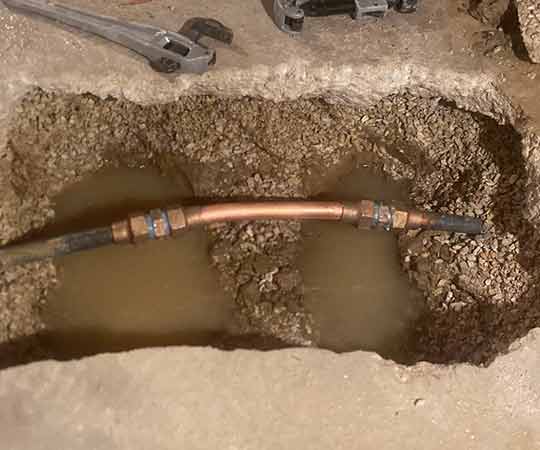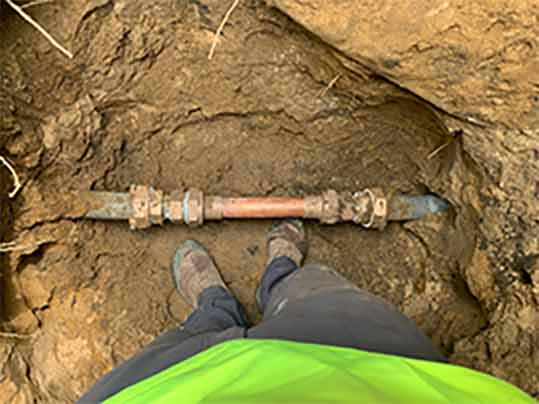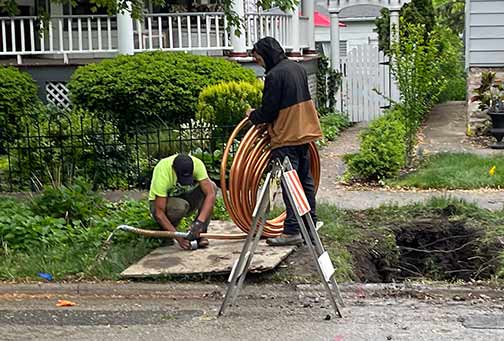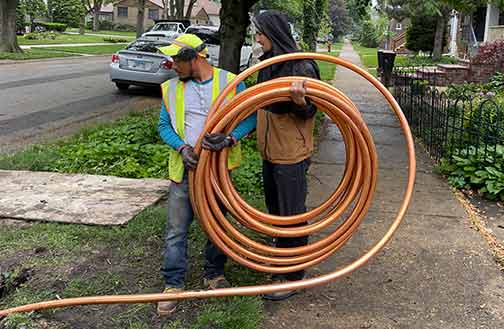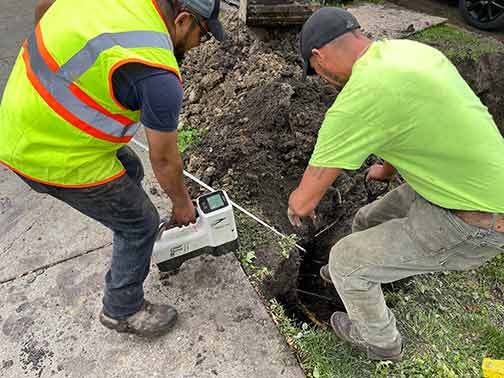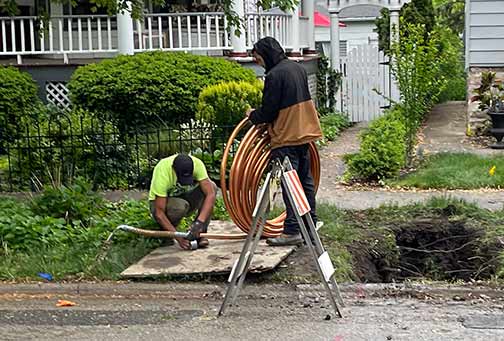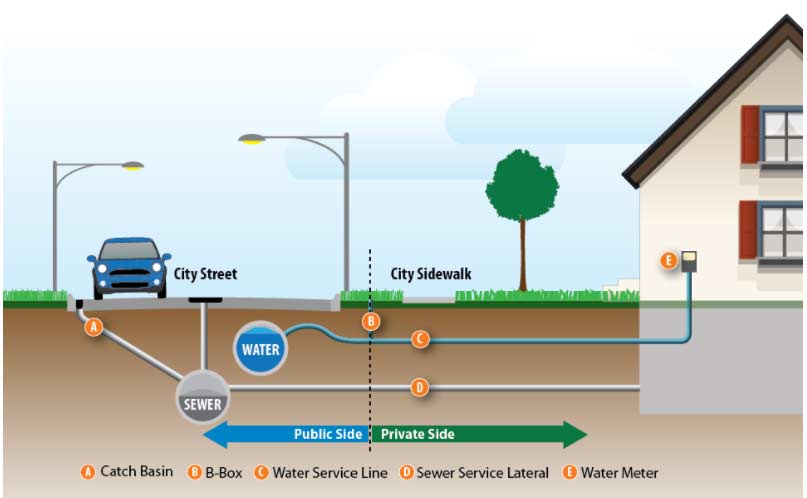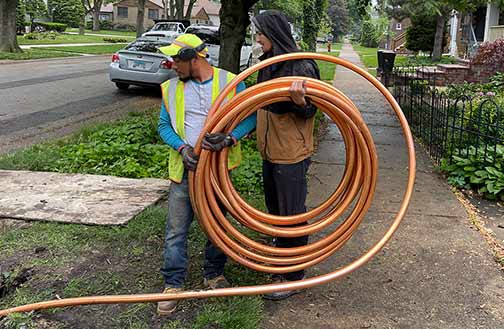When it comes to replacing a broken water service line, there are several essential factors that need to be considered. This is not a decision that should be taken lightly, as it can have significant implications for both your property and your budget. In this article, we will explore the key factors that should be taken into account before replacing a broken water service line. Whether you are a homeowner or a property manager, understanding these factors will help you make an informed decision and ensure that the replacement process goes smoothly.
The Importance of a Functional Water Service Line
Before diving into the factors to consider before replacing a broken water service line, it’s important to understand the role that this line plays in your property’s overall water infrastructure. The water service line connects your property to the main water supply, allowing water to flow into your building’s plumbing system. If the water service line is broken or damaged, it can lead to a range of issues, including low water pressure, leaks, and even contamination.
Expert Assessment
One of the first steps you should take when considering a water service line replacement is to seek out the expertise of a professional plumber or water service line specialist. They will be able to assess the condition of your current water service line and provide you with an accurate diagnosis of the problem. This assessment will help you determine whether a replacement is necessary, or if a repair is a viable option.
Cause of the Breakage
Understanding the cause of the water service line breakage is crucial in determining the best course of action. There are several common causes of water service line breakage, including aging pipes, ground movement, tree root intrusion, and freezing temperatures. By identifying the root cause, you can take preventive measures to avoid future breakages.
Material Selection
When replacing a broken water service line, it’s important to consider the materials that will be used. The choice of materials will depend on various factors, such as the soil conditions, water quality, and budget. Commonly used materials for water service line replacement include copper, PVC, and PEX. Each material has its own advantages and disadvantages, so it’s essential to select the one that best suits your specific needs.
Permitting and Regulations
Before undertaking any water service line replacement, it’s crucial to ensure that you comply with all necessary permits and regulations. Different jurisdictions may have specific requirements regarding the installation and replacement of water service lines. It’s important to consult local authorities or your municipality to obtain the required permits and ensure that the replacement process is carried out in accordance with the regulations.
Cost Considerations
The cost of replacing a broken water service line can vary depending on several factors, including the length of the line, the materials used, and the complexity of the installation. It’s important to obtain multiple quotes from reputable contractors to ensure that you are getting a fair price for the replacement. Additionally, it’s important to consider the long-term cost implications, such as maintenance and potential repairs, when making your decision.
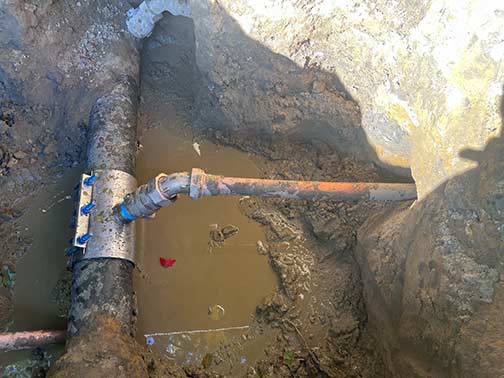
It’s important to discuss the potential impact on your property with your contractor and make necessary arrangements to minimize any damage or inconvenience.
Timeline and Disruption
Replacing a water service line can be a time-consuming process that may cause disruptions to your property. It’s important to discuss the timeline with your chosen contractor to ensure that the replacement can be completed within an acceptable timeframe. You should also consider how the replacement process may disrupt your daily activities, especially if the water supply to your property needs to be temporarily shut off. Planning ahead and making necessary arrangements can help minimize inconvenience during the replacement.
Impact on Property
Replacing a water service line can have an impact on your property, both during and after the replacement process. Excavation may be required to access the water service line, which can lead to disruptions to your landscape or paved areas. It’s important to discuss the potential impact on your property with your contractor and make necessary arrangements to minimize any damage or inconvenience.
Wrapping It Up
Replacing a broken water service line is a significant decision that requires careful consideration of various factors. By understanding the importance of a functional water service line, seeking expert assessment, identifying the cause of the breakage, selecting the appropriate materials, complying with permits and regulations, considering the cost implications, planning for the timeline and disruption, and mitigating the impact on your property, you can make an informed decision and ensure a successful replacement process. Remember, it’s always best to consult with professionals who can provide you with the necessary guidance and expertise throughout the entire process.
